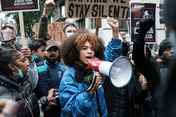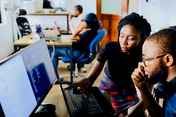Children’s rights: participation and protection
The United Nations Convention on the Rights of the Child is a universal set of entitlements inherent to every child that provides a unifying framework for the survey. Children’s human rights are standards for well-being that governments at all levels are responsible to respect, protect and fulfill. Collecting and using quality data to advance the rights of children and youth is an expectation of governments at all levels pursuant to article for of the Convention on the Rights of the Child. The Community Child and Youth Survey helps communities measure well-being, and within that framework, their progress to secure children’s rights and also achieve the United Nations Sustainable Development Goals (SDGs).
Concepts of child well-being, children’s rights and the SDG targets substantially overlap, but also differ in some ways. For example, friendships are important for children’s well-being, but the right to a good friend is not possible. Achieving the SDG targets will achieve at least partial fulfillment of children’s rights. The Community Child and Youth Well-being Survey embeds indicators that measure and monitor the achievement of children’s rights and relevant SDG targets for children and youth at the community level.
Furthermore, the Community Child and Youth Well-being Survey takes a children’s rights–based approach not only to what is measured, but also to how. Children and youth under age 18 have rights to information, privacy, participation and protection, among others. The survey helps to measure the extent to which rights are achieved, but the design and implementation of the survey are also intended to support children’s rights by ensuring opportunities for young people to participate in every aspect of the survey process. For instance, our recommended approach to consent to participate in the survey is for young people age 13 and up to decide their consent. This aims at a balance between their rights to information and participation in decisions affecting them, and their rights to protection according to their evolving capacity (supported by brain science). Young people below age 13 are asked to assent if a caregiver consents, supporting their rights to information and participation in decisions affecting them, as well as their rights to protection and parental guidance. The survey process supports opportunities for young people to meaningfully participate at every stage of the data cycle so they are not simply objects of data collection. Data are collected and used with and for, not just about, children and youth.
.jpg)





































